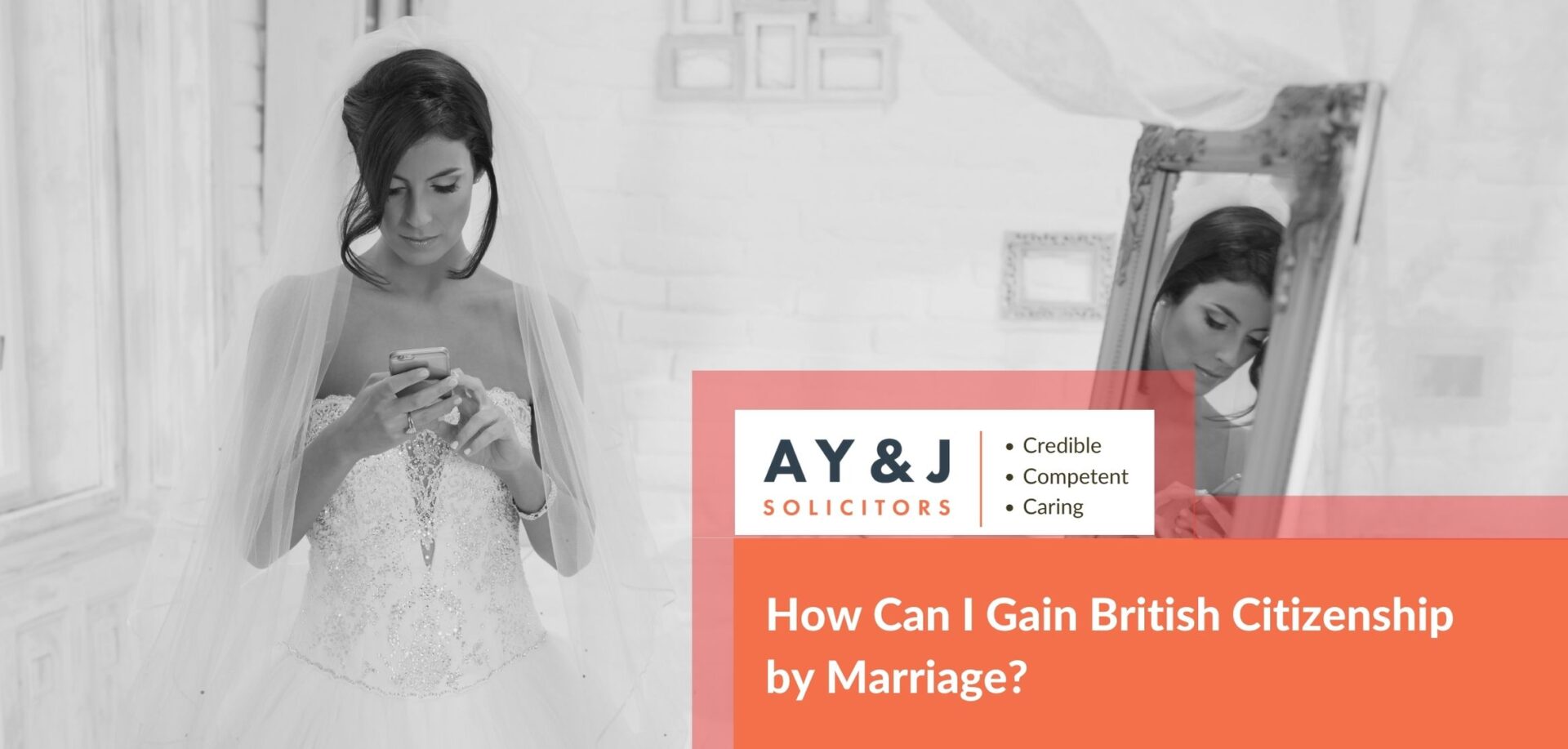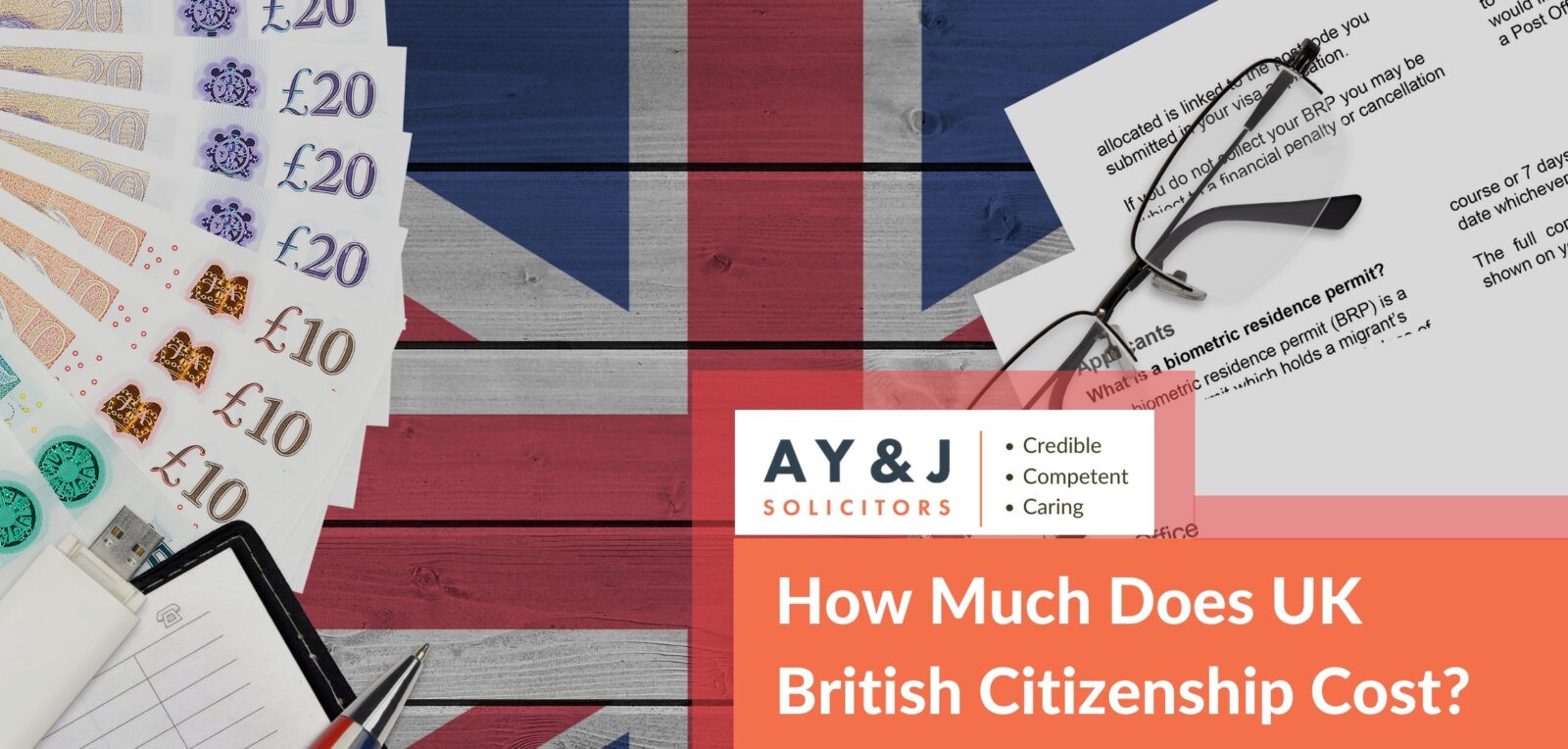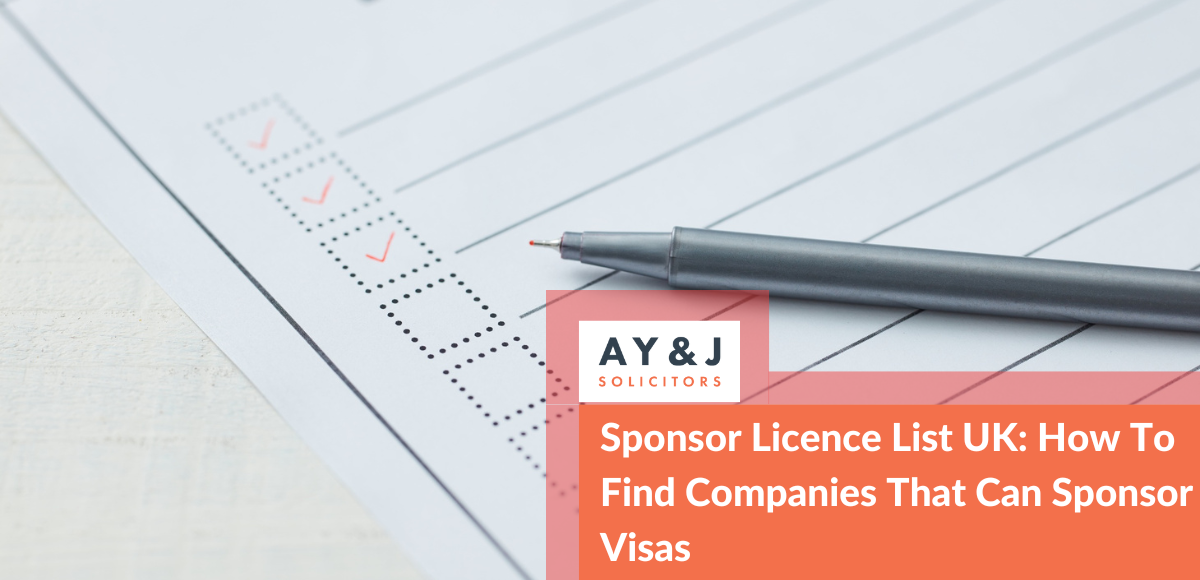Disclaimer: All the data is correct as of the publication date. Always check official guidance before applying, as Home Office policies and fees are subject to change.
Getting British citizenship through marriage can give you a real sense of stability and belonging in the UK. You’ll be able to apply for a British passport, settle here permanently, and even vote in elections once you’re registered. But the application process can feel overwhelming if you’re not sure where to start. If you’re looking to apply for British Citizenship, this blog breaks down everything you need to know – who’s eligible to apply, how long you need to have lived in the UK, and what visa status you’ll need when you submit your application. It also covers the practical requirements like passing the Life in the UK Test, meeting the good character standards, and proving your English language skills.
Understanding the process, gathering the right documents, knowing typical processing times, and avoiding common mistakes will put you in a much stronger position to get your application approved first time.
Before applying, make sure you meet all the latest British Citizenship Requirements 2025, including residence, good character, and language criteria.
Table of Contents
Quick Summary: Why Apply for British Citizenship Through Marriage?
- Live in the UK permanently with full rights
- Apply for a British passport once approved
- Faster route – just 3 years of residence instead of the standard 5
- Full access to the NHS and UK education system
- Vote in UK elections after registering
As a Legal 500 recommended firm, A Y & J Solicitors has helped over 100s of clients successfully secure British citizenship.
Can I Get British Citizenship by Marriage?
Yes, it’s not automatic, though. Marrying a British citizen does not automatically make you British; you still need to complete all the requirements and apply for naturalisation. You must be married to or in a civil partnership with a British national and be at least eighteen years old. Additionally, you must have spent at least three years residing in the UK. You must already have EU settled status, Indefinite Leave to Enter (ILE), or Indefinite Leave to Remain (ILR) at the time of application. To put it another way, you must have a permanent residence. The maximum amount of time you are permitted to spend outside the UK is 270 days over the course of three years, with a maximum of 90 days in the year prior to application. Ultimately, the most important thing is your marriage has to be legally recognised in the UK. If you’re only engaged or living together as unmarried partners, this route won’t work for you.
If you’re still on a Spouse Visa, learn how to secure settlement first through our detailed Spouse Visa to ILR Guide before applying for citizenship.
Requirements for British Citizenship by Marriage
Use this checklist before you start. These are the core UK spouse citizenship requirements, with what the Home Office expects to see:
- Age: You must be 18 or over on the application date.
- Marriage or civil partnership: Your relationship must be legally valid. Provide the certificate and proof your partner is a British citizen.
- Residence: You must have lived in the UK for 3 years before the application date. Keep evidence such as visas, BRP history, HMRC or council records, and utility bills.
- Immigration status: Hold ILR, ILE, or EU Settled Status on the day you apply. Upload the status share code or BRP details.
- English language: Meet B1 or higher through an approved test or a qualifying English-taught degree.
- Life in the UK Test: Pass and include the reference number.
- Good character: Disclose convictions, tax records, penalties, and any immigration issues.
To plan your application budget, see the full British Citizenship Fees 2025 breakdown, including Home Office charges, ceremony costs, and additional expenses.
Who Cannot Apply for British Citizenship by Marriage
Not everyone married to a British citizen automatically qualifies for citizenship. You cannot apply for British citizenship by marriage if:
- You are separated or divorced from your British spouse.
- Your marriage or civil partnership is not legally recognised in the UK.
- You do not hold valid immigration status, such as Indefinite Leave to Remain (ILR), Indefinite Leave to Enter (ILE), or EU Settled Status.
- You have serious criminal convictions or breached UK immigration law, including overstaying or false document use.
If you’re unsure whether your status or relationship qualifies, it’s best to seek legal advice before applying to avoid unnecessary refusals.
English Language Requirement
Are you wondering if getting married and obtaining British citizenship requires taking the IELTS? Unless you are exempt, you must demonstrate English proficiency at B1, B2, C1, or C2. A UKVI-approved speaking and listening test, like the IELTS Life Skills B1 or another approved SELT at B1 or higher, is the most popular method. An academic degree that is taught or researched in English is a second option. You must also provide the necessary verification that the degree is equivalent and was taught in English if it was granted outside of the United Kingdom. If you are 65 years of age or older, have a chronic physical or mental illness that precludes testing, or are a citizen of a nation with a majority English-speaking population, you are exempt. There is no need to meet this requirement if you are from Antigua and Barbuda, Australia, The Bahamas, Barbados, Belize, the British overseas territories, Canada, Dominica, Grenada, Guyana, Jamaica, Ireland, Malta, New Zealand, St Kitts and Nevis, St Lucia, St Vincent and the Grenadines, Trinidad and Tobago, or the USA.
Also Read: Life in the UK Test
Permanent Residence Requirement
On the day you apply, you must already hold one of these statuses:
- Indefinite Leave to Remain
- Indefinite Leave to Enter
- EU Settled Status
ILR attests to the grant of permanent residence within the United Kingdom. The same settled rights are granted upon arrival, and ILE is granted prior to entry. Eligible Swiss and EEA nationals, as well as their family members, who have successfully completed the EU Settlement Scheme are eligible for EU Settled Status. Make sure your digital status is up to date and have your BRP information or a working share code ready. For spouses, there is good news. If you have completed three years of residency and meet all other requirements, you can apply as soon as your ILR is issued, unlike the standard route, which frequently requires a year on ILR.
What Are the Residency Requirements for British Citizenship Through Marriage?
Most applicants follow the Spouse Visa route of 2 years 6 months plus another 2 years 6 months, which leads to ILR. You can then apply for British citizenship by marriage once you have completed a full 3 years of residence in the UK and you hold ILR, ILE, or EU Settled Status on the date of application. After approval you must attend a citizenship ceremony. You can apply for a British passport once you receive your certificate.
Travel limits matter. In the 3 year qualifying period you must not exceed 270 days outside the UK in total, and not more than 90 days in the final 12 months. The physical presence rule also applies. You must have been in the UK exactly 3 years before the Home Office receives your application. Keep a precise travel log and check passport stamps against your records.
Related link: Indefinite Leave to Remain, ILR
How Long Does UK Spouse Citizenship Take?
Most applications for British citizenship by marriage are decided within 6 months. The Home Office guidance quotes up to 26 weeks. Some priority or super priority options are offered at times for biometrics or processing, but availability is limited and never guaranteed.
What can affect timing:
- How quickly you book biometrics and upload evidence
- Extra checks on absences, names, or previous visas
- Good character enquiries, including tax and criminal records
- Requests for more documents
- Busy periods at UKVCAS or the Home Office
Practical tips:
- Prepare a clean travel log and match it to passport stamps
- Keep proof of ILR, ILE, or Settled Status ready
- Use clear scans and consistent personal details
- Respond to any Home Office contact immediately
Decisions usually take up to 6 months. Some cases finish sooner, others take longer if additional checks are needed.
Can I Get a British Passport if I Am Married to a UK Citizen?
Marriage to a British citizen does not give you a passport by itself. You can apply for a UK passport through marriage only after your citizenship application is approved and you have attended your ceremony. At that point you apply to His Majesty’s Passport Office with your certificate of naturalisation, current passport, biometric photo, and any name change evidence. Ensure your ILR BRP or status is updated, as it will no longer be valid after citizenship. Allow weeks for processing and use the countersignature where required. Children do not gain a passport automatically. They need eligibility and an application.
Common Reasons for Refusal of British Citizenship by Marriage
Refusals often come down to avoidable errors. Check these points before you submit.
- Incomplete or inconsistent documents: Names, dates, and addresses must match across passports, BRP or status, marriage certificate, and proofs of residence.
- Absence limits and physical presence: Stay within 270 days over three years and 90 days in the final year, and be in the UK exactly three years before submission.
- Tests not passed or not evidenced: Upload the Life in the UK reference and an approved English result or valid exemption.
- Residence or immigration breaches: Gaps in lawful stay, late applications, or unpaid NHS or civil penalties can derail a case.
- Good character concerns: Disclose all convictions, cautions, tax filings, and penalties.
- Wrong category or weak relationship proof: Use the correct naturalisation route and include evidence that your partner is British.
UK Citizenship by Marriage Cost in 2025
The core Home Office charge is the naturalisation application fee of £1,580. After approval, you must attend a citizenship ceremony, which typically carries an additional fee of about £80 set by the local authority. You’ll also need to pass the Life in the UK Test.
Read our complete Life in the UK Test Guide to understand what to expect and how to prepare effectively. You will also pay third party costs for the Life in the UK Test and the English language test, where required. These are paid directly to test providers and vary with location and availability.
Optional UKVCAS services and appointment upgrades can add to the total. Priority processing, when offered, attracts extra fees. Your first British passport is a separate cost and is not included in the citizenship fee. Budget for certified translations, postage, and solicitor support, all of which are outside Home Office charges. Fees change, so check GOV.UK before you apply.
Step by Step: How To Apply For British Citizenship Through Marriage
- Confirm dual nationality rules
Check whether your country permits dual citizenship. If not, decide whether you will renounce your original nationality. Look at passport, property, and tax impacts before you proceed. - Check full eligibility
Verify age 18+, valid marriage or civil partnership, 3 years UK residence, and ILR, ILE, or EU Settled Status on the date you apply. Confirm English at B1 or above, Life in the UK Test passed, and good character. - Gather documents
Collect your passport, BRP or status share code, marriage or civil partnership certificate, partner’s British passport, proof of cohabitation and residence, travel history, Life in the UK reference, and English evidence. Add certified translations where needed. - Complete the online form
Choose the naturalisation route as the spouse or civil partner of a British citizen. Enter names, past visas, absences, and convictions exactly as shown in your records. - Pay the fee and book biometrics
Pay the Home Office fee, then select a UKVCAS appointment. Consider paid locations or prime times if you need flexibility. - Submit evidence
Upload clear scans before your appointment or use in-centre scanning. Label files sensibly, for example, “Absences,” “ILR proof,” “Marriage certificate.” - Attend biometrics
Provide fingerprints and a digital photo. Bring the appointment confirmation and any documents you plan to scan. - Respond to queries
If the Home Office requests more information, reply quickly with precise documents and explanations. - Decision and ceremony
If approved, book your citizenship ceremony with your local authority, take the oath or affirmation, and receive your certificate. - Apply for your first British passport
Submit the naturalisation certificate, current passport, biometric photo, and any name change evidence to His Majesty’s Passport Office.
Frequently Asked Questions
Do I Need ILR Before Applying for British Citizenship by Marriage?
Yes, you must have ILR, ILE, or EU Settled Status before applying for British citizenship by marriage. You cannot apply while still on a Spouse Visa or any temporary visa, even if you’ve completed three years of residence. Your settled status proves your right to remain permanently in the UK, which is a core eligibility requirement for citizenship.
How Soon After ILR Can I Apply for Citizenship by Marriage?
One of the key advantages of the British citizenship by marriage route is that you can apply immediately after receiving ILR. Unlike most applicants who must wait 12 months after ILR, spouses of British citizens can submit their application as soon as they’re granted ILR, provided they have lived in the UK for at least three continuous years before applying.
Final words
Gaining UK citizenship through marriage is a dream for many foreign nationals who want to make the UK their permanent home with their married partner. By understanding the naturalisation rules and requirements and preparing a robust application backed up by the evidence needed, you can be assured of a positive outcome. We wish you all the best with your UK citizenship application.
A Y & J Solicitors is a specialist immigration law firm with extensive experience with all types of visa applications. We have an in-depth understanding of immigration law and are professional and results-focused. For assistance with your visa application or any other UK immigration law concerns, please contact us on +44 20 7404 7933 or at contact us today. We’re here to help!









